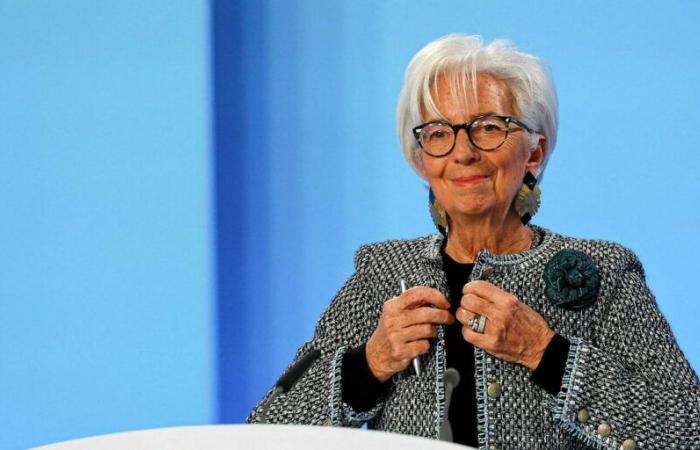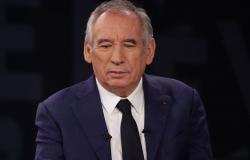HAS Frankfurt, the presence of the Christmas market is not enough to make the low, gray sky more festive. In a double tower that pierces this lead dome, the headquarters of the European Central Bank (ECB) also hosts a city tradition: the board of governors. For its last decision of the year 2024, there were no real surprises in the gift package unveiled by the central bankers.
From the top of 41e floor, this decision-making body, made up of the six members of the executive board and the governors of the national central banks of the euro zone countries, decided this Thursday, December 12 to lower its interest rates by 0.25 points. A decision taken unanimously. This is what the main observers expected. After pursuing a restrictive policy to combat inflation born from the Covid pandemic and fueled by the war in Ukraine, the ECB began lowering its rates last June.
As is another custom, Christine Lagarde, the President of the ECB, then appeared in front of journalists from around the world to engage in the precise exercise of the press conference. In a silence only disturbed by the photographers' flash, the former French Minister of the Economy put away her notes and adjusted her glasses. Before delivering a speech in a neutral tone indicating the reasons which led the Governing Council to go a little further in relaxing its policy. “The disinflation process is on track,” she insisted.
France, Germany… The clouds are accumulating
The one in which each word is weighed with a trebuchet was then cooked on the disappearance in the press release of a necessary passage of recent years, that indicating that the rates had to remain “restrictive as long as necessary” to bring inflation back to the objective. The battle against soaring prices has not yet been completely won, but the slope is good.
Even if it is not officially in its mandate, the ECB must now face another danger: that of faltering growth. “Eurosystem staff now anticipate a slower economic recovery than in the September projections,” she said.
Indeed, clouds are gathering over the euro zone. Election of Donald Trump in the United States, geopolitical tensions, lack of budget in France, political turbulence in Germany… Asked about the French situation, the former Minister of the Economy somewhat sidestepped by indicating that she was not commenting not the situation country by country.
To Discover
Kangaroo of the day
Answer
But the situation is obviously being closely scrutinized in Frankfurt. If the budgetary micmac continued and the markets punished Paris, the ECB would find itself on the front line. Since this summer, a debate has animated experts: would she be obliged to save France? Instruments exist, but they cannot be drawn out at random, at the risk of creating a moral hazard…
For the French economy, mired in a thick fog due to the absence of a budget vote, this loosening of monetary policy is, in any case, good news. This decision should give a little more breathing space to French borrowing rates, under pressure due to the political crisis. Businesses and households should also benefit, even if the effect of the rate cut is never instantaneous. There is a transmission delay, which is difficult to estimate. It remains to be seen whether the year 2025 will be as chaotic as expected… Should we hope for a Christmas miracle?






